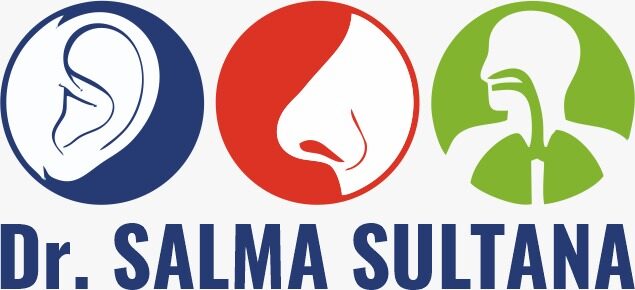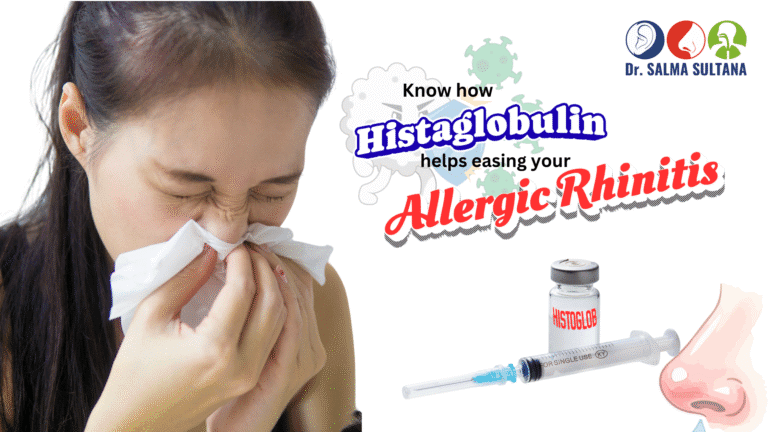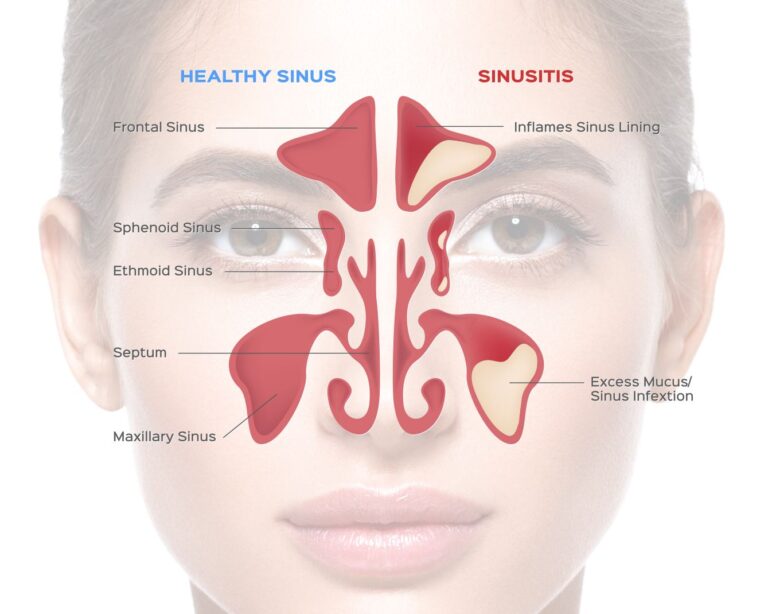Sinusitis: Causes, Symptoms, and Effective Treatments
Sinusitis is a common condition that affects millions of people worldwide, causing discomfort and interfering with daily life. It occurs when the sinuses become inflamed due to infection, allergies, or other triggers. Understanding sinusitis and its treatment options can help manage the condition effectively.
What is Sinusitis?
The sinuses are air-filled cavities located in the skull, surrounding the nose. Their function is to produce mucus that keeps the nasal passages moist and traps dust, pollutants, and germs. When these sinuses become blocked due to swelling, mucus gets trapped, leading to infection and inflammation, a condition known as sinusitis.

Types of Sinusitis
Sinusitis is classified into four types based on its duration and severity:
- Acute Sinusitis – Lasts for less than four weeks and is usually caused by a viral infection like the common cold.
- Subacute Sinusitis – Persists for 4 to 12 weeks, often following an untreated acute infection.
- Chronic Sinusitis – Lasts for more than 12 weeks and may result from persistent inflammation, allergies, or nasal polyps.
- Recurrent Sinusitis – Occurs multiple times in a year, often due to underlying health issues or repeated infections.
Symptoms of Sinusitis
Common signs of sinusitis include:
✔️ Nasal congestion and difficulty breathing through the nose
✔️ Thick yellow or green nasal discharge
✔️ Facial pain and pressure, especially around the forehead, cheeks, and eyes
✔️ Headache and ear pain
✔️ Postnasal drip (mucus dripping down the throat)
✔️ Sore throat and cough
✔️ Fever in some cases
✔️ Bad breath (halitosis)

Diagnosis of Sinusitis
A doctor will diagnose sinusitis based on symptoms, a physical examination, and in some cases, additional tests such as:
- Nasal Endoscopy – A thin tube with a camera is inserted into the nose to examine the sinuses.
- CT Scan – Provides detailed images of the sinuses to detect blockages or structural issues.
- Allergy Testing – Identifies allergens that may be triggering sinus problems.
Treatment Options for Sinusitis
1️⃣ Home Remedies and Lifestyle Changes
- Steam Inhalation – Helps clear nasal congestion.
- Saline Nasal Spray – Rinses out mucus and allergens.
- Hydration – Drinking plenty of fluids helps thin mucus.
- Rest and Sleep – Supports the immune system in fighting infection.
2️⃣ Medications
- Decongestants – Reduce nasal swelling and improve drainage.
- Antihistamines – Useful for sinusitis caused by allergies.
- Pain Relievers – Ibuprofen or acetaminophen can help relieve headaches and facial pain.
- Nasal Steroid Sprays – Reduce inflammation in chronic cases.
- Antibiotics – Prescribed only if bacterial infection is suspected.
3️⃣ Surgical Treatment
For chronic or recurrent sinusitis that does not respond to medication, surgical options like Functional Endoscopic Sinus Surgery (FESS) may be considered. This procedure helps remove blockages and improve sinus drainage.
How to Prevent Sinusitis?
✔️ Wash hands regularly to prevent infections.
✔️ Avoid allergens and irritants.
✔️ Use a humidifier to keep nasal passages moist.
✔️ Stay hydrated and maintain a healthy diet.
✔️ Treat underlying allergies promptly.
When to See a Doctor?
Seek medical attention if you experience:
🔴 Symptoms lasting more than 10 days without improvement.
🔴 Severe facial pain and swelling.
🔴 High fever that persists.
🔴 Frequent or recurrent sinus infections.
Conclusion
Sinusitis is a common yet treatable condition. Early diagnosis and proper management can prevent complications and improve quality of life. If you suffer from persistent sinus issues, consult an ENT specialist for the best treatment options.
For more expert advice on sinus health, stay tuned to our blog!





